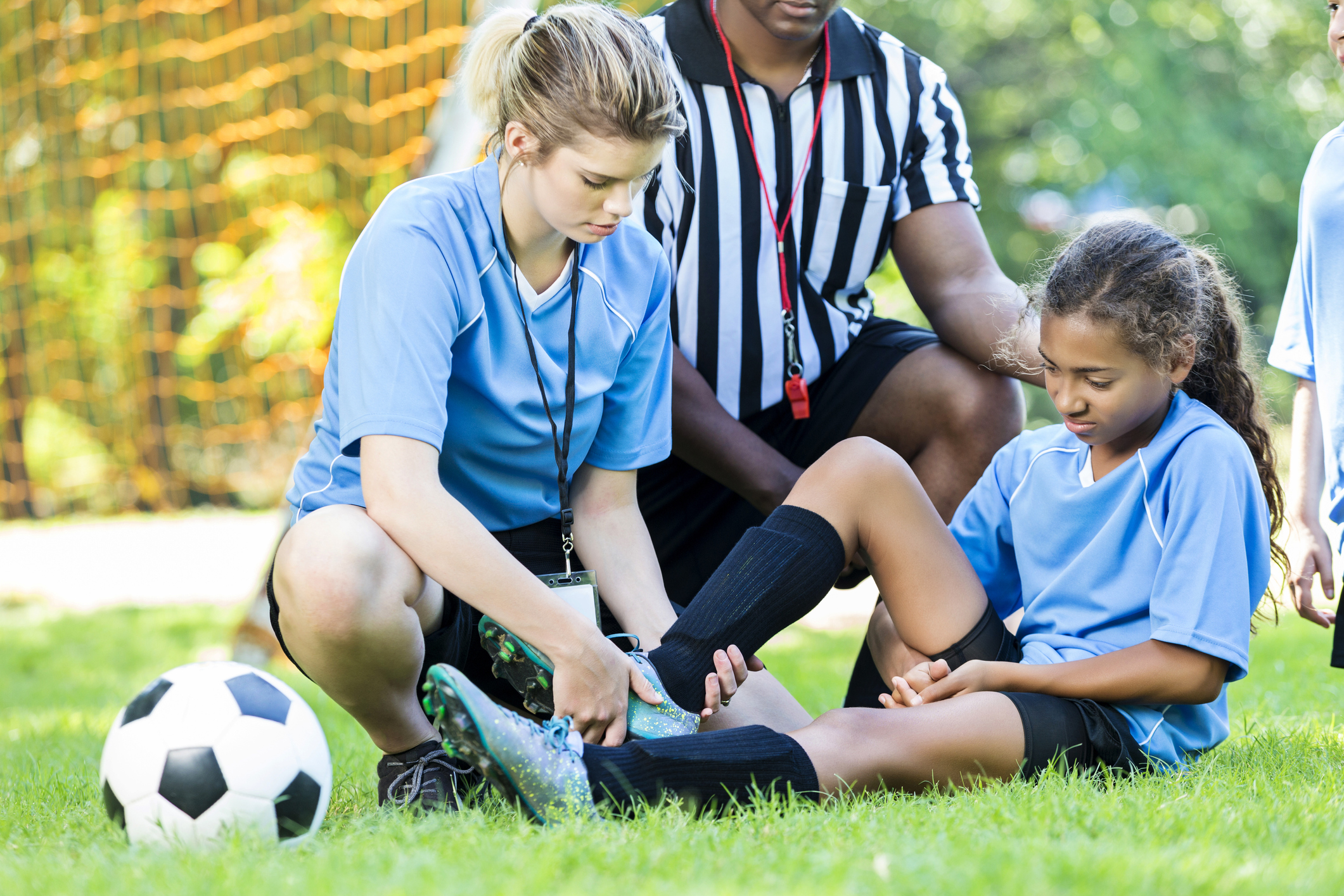Examining the importance of athletic trainers

We recently spoke with Laurie Blunk, MS, LAT, ATC, athletic trainer with UK HealthCare Orthopaedic Surgery & Sports Medicine, about her profession and the importance of athletic trainers.
Broadly speaking, what is an athletic trainer?
Athletic Trainers are nationally certified, and in many states licensed, healthcare providers who specialize in the prevention, diagnosis, and treatment of athletic-related injuries and illnesses along with the immediate care of individuals experiencing emergencies.
We work in many areas from the traditional settings of professional sports, colleges, high schools and even middle schools but also in other places where you might find active individuals such as the military, the industrial setting, and even performing arts.
What kind of education is required to become an athletic trainer?
Athletic training has recently transitioned from a bachelor's to a master’s degree program. Over the course of their education, athletic trainers spend countless hours doing hands-on clinical education in the field along with their work in the classroom. Upon graduation from an accredited program, athletic trainers must also pass a national board certification exam, and in many states they must also be licensed by the state medical board.
Why is it so important for sports teams to have a dedicated athletic trainer?
Having a dedicated athletic trainer for your team promotes the best possible care for our athletes. It's such a unique field of medicine where we have the luxury to get to know our patients while they're healthy, be there throughout various injuries and illnesses, and then help them successfully return to what they love.
In most cases, we can keep athletes playing by performing the treatments necessary to keep them at their best when injuries are reported to us early on.
We also care for our patients as a whole and understand that the mental and emotional has an impact on the physical. Our athletes come to us when they're going through tough situations in life and we provide guidance and support and are able to refer them for additional help when needed. We are dialed in and know when we may need to keep a closer eye on an athlete on a given day because their mind is somewhere else, which makes their risk of injury higher.
Knowing your athletes’ medical history is also important. For example, knowing who on the team has asthma and where their rescue inhaler is in the event of an attack, or who's allergic to bee stings and has an epipen, or has a condition like epilepsy. Having this knowledge when a situation arises helps to deliver the appropriate care in a timely manner.
While coaches and other individuals may also be able to render care, they have so many other things on their plate, whereas the athletic trainer’s sole responsibility is the health and safety of the athlete.
I always say athletic trainers are an advocate for athletes and will put their health and well-being first. This may be standing up to the adults involved when a youth athlete is over-training and their body is breaking down, or explaining to an athlete why they shouldn't just push through a certain injury.
Why is it important for athletic trainers to be on-site at athletic competitions?
Athletic trainers are trained to know the best course of action for various injuries and emergencies. Knowing what needs to be referred immediately to the ER and what may be able to wait for a visit to the walk-in clinic the next morning makes a huge difference.
For example, an ACL injury can typically wait to be treated the next day, while multi-ligament knee injuries are more serious and can even be limb-threatening if not referred to the ER immediately. Athletic trainers are trained how to properly examine a knee and know how to differentiate the two situations along with many other injuries.
Athletic trainers are also responsible for the development and implementation of emergency action plans and practice them on a regular basis. In the event of an emergency, seconds can matter and having an athletic trainer who's on the sidelines can cut response time significantly and make all the difference in that athlete’s chances of survival.
To schedule an appointment with UK HealthCare Orthopaedic Surgery & Sports Medicine, call 859-218-3131.
Listen to our episode of the UK HealthCast podcast featuring Laurie Blunk discussing the work of athletic trainers:





